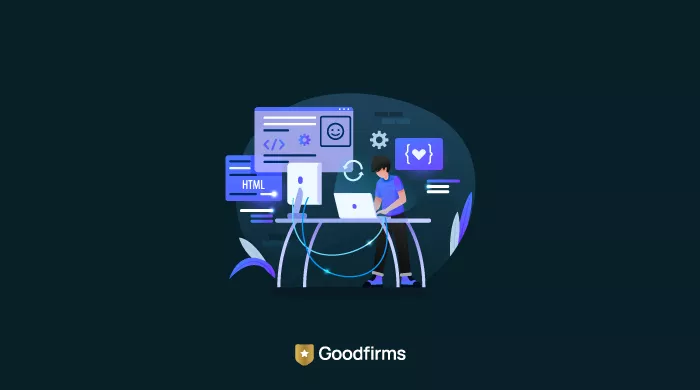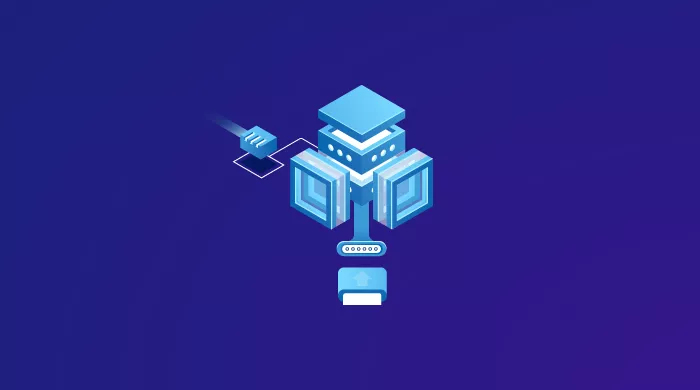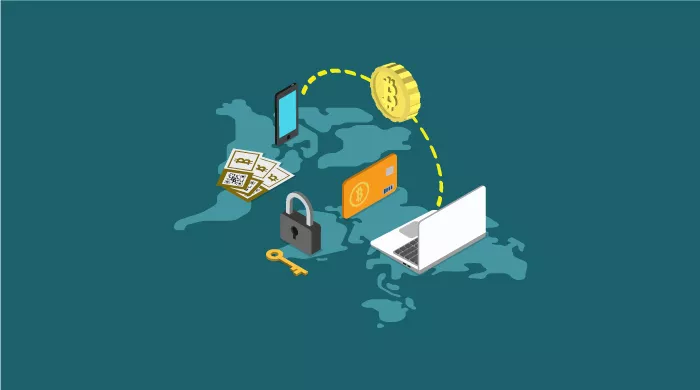Blockchain technology is still relatively new. However, it has already penetrated a wide range of industries on a global level. It can potentially change the way any digital data is processed shortly. As per the top blockchain development companies, this technology can solve some of the most complicated problems the world is dealing with right now. This article will give you an overview of the top ten issues blockchain can deal with.
1. Data Storage
The days when knowledge was available only to the chosen ones are long gone. In the digital age, cutting yourself off from the nonstop information stream is much more complicated than getting the information you need. With the emergence of Facebook and the development of artificial intelligence and machine learning, the amount of information that needs to be stored is continuously growing.
Big Data significantly challenges the capacities of modern data centers. As the technologies mentioned above develop further, the data storage situation gets tougher. IDC predicts that the world will have 163 zettabytes of data to store by 2025. Current cloud storage services do not have the potential to deal effectively with such vast amounts of information.
Thanks to its decentralized and distributed nature, blockchain can potentially solve the data storage issue. To store the data in the blockchain, one will need to break it into small parts. Every part will be encrypted and uploaded to the blockchain. Next, the data will be distributed so that it can be accessed even if a part of the network does not function. Such data handling can serve as a much better alternative to cloud storage.
2. Data Security
Storing data in blockchain will bring a vast improvement to data security. Currently, the cloud data is stored in centralized storage units, which makes it sensitive to any security breach. Blockchain can enhance the safety and speed of cloud storage. The data stored in the blockchain will be stored across the nod network. In this case, there will be no need to rely on a central entity or location. Any data attack will not be potentially fatal in the blockchain storage. There will be no way to tamper with or steal the data stored in the blockchain.
Storing data in the blockchain will secure it from force-major circumstances that damage and destroy centralized databases at present (e.g., natural disasters, riots, political escalation). A distributed blockchain data storage network will store redundant copies of data among different nodes so that there is no data downtime or loss, no matter what. Blockchain has the potential to store, process, and manage data without the need to rely on any third party.
3. Transactions
Currently, most payments in nearly every industry are made via a third-party financial institution. Blockchain payments can improve the efficiency of payment procedures for many businesses. For example, when a company enables a blockchain-based payment processor, it will eliminate the payment delays and time-consuming procedures of the outdated payment system. With blockchain, instant, secure transactions can be an affordable alternative for many businesses.
The blockchain enables a real-time audit of all the transactions, securing them from any modifications. It can potentially enhance the operation of many compliance-intensive industries. Businesses can use smart contracts (applications that run precisely as programmed without allowing third-party intervention, fraud, or downtime) to establish unbreakable regulations for their financial transactions.
For instance, Slock, an IoT platform with Ethereum, uses smart contract software for a bike rental service. When both parties agree on the contract terms, a smart lock unlocks on the bike, and a user can ride it.
4. Intermediaries
Conventional financial transactions are impossible without intermediaries like banks. Banks are middlemen who ensure the money you transfer will get to the predetermined recipient. However, banks do not show you how the transactions happen, and after you hand the money to the bank, you can only wait until the recipient receives it. Blockchain allows you to trust your finances to secure technology instead of banks.
With blockchain, it is possible to avoid middlemen in many cases. With the help of a set of digital keys, one can send digital payments from their virtual wallet to a recipient’s virtual wallet. To perform such a transaction, one needs to know the public address of a recipient’s Bitcoin wallet. Such transactions are quick, secure, and irreversible, which makes them more advanced than habitual bank transfers.
Moreover, blockchain transaction fees are currently much lower than bank fees. Even in cases when intermediaries are needed, holding transactions via blockchain will help businesses and individuals eliminate fraud and secure all transactions.
5. Supply Chains
Nowadays, supply and logistics chain management are extremely complex. Some products undergo dozens or even hundreds of steps in their supply chain journey. Processing all the invoices, payments, logistics, and tax documents takes a lot of time and resources. Because of this, the supply of some products can stretch to months and even years. Somewhere along the process, errors, fraud, and force-major circumstances can lead to high losses. Long supply chains can lead to more potential losses for all sides of the deal.
Blockchain technology is one of the most promising technologies for supply-chain management. It can greatly improve asset recording, tracking, assigning, linking, and sharing. Blockchain can facilitate the efficiency of supply chains significantly because it offers excellent security and transparency of transactions. Blockchain can help document the supply chain journey of every product for better protection and transparency of every step.
Blockchain can replace traditional trade processes and transform trade procedures. As a result, it can increase trade volumes and transform the global economy. With the help of blockchain, illegal and unethical practices can be eliminated from supply chains worldwide.
6. Intellectual Property
Intellectual property owners worldwide find it hard to protect their rights in the digital age. It seems that almost any work of art can be stolen, copied, and distributed by pirates. However, some companies have already found a solution to this issue with the help of blockchain technology.
For example, Binded created a website that helps artists protect their original images by saving them to the blockchain. This way, an artist receives a certificate proving the picture is authentic. However, such a certificate is not a substitute for a certificate at the U.S. Copyright Office. If an artist wants to win any statutory damages in a lawsuit in the US, they still need to comply with the formalities.
Any form of intellectual property, be it an invention, a trade secret, or a song you’ve written, can be secured from theft with blockchain. With blockchain, one can create a digital trail of records of their innovation process. One can quickly obtain blockchain certificates to prove their ownership over the existence and integrity of an IP asset they own.
7. Government Operations
Unfortunately, there is no perfect government that is faultless, corruption-free, and just. The adoption of blockchain technology can greatly facilitate the delivery of public and government services. Blockchain can address the major pain points of elections, identity management, and taxes.
Currently, the standards of identity management are different across the world. It makes the identification process long, inconvenient, and vulnerable. Combining biometric technology and blockchain can replace the outdated identity management system. It will make participating in elections, receiving government benefits, and traveling much easier.
Blockchain can make taxation systems more efficient by automatically checking tax records for fraud. Currently, the US government loses millions of dollars to tax fraud annually. The government will ensure that no tax record can be hacked or changed by implementing blockchain solutions.
8. Charity
The current social funding and charity model is not credible among the majority of people. Millions of dollars are wasted on social funding projects. Little transparency makes more and more people suspicious about the reliability of different charities. Moreover, some practical social projects never scale because they struggle to get enough visibility. Blockchain can be the answer the sector is looking for.
Blockchain can transform the charity sector significantly. First, it can boost the population's trust by making donations transparent. Next, it can reduce transaction costs and other expenses for all sides of the deal. Moreover, blockchain technology can reduce administration costs by automating most processes and approving transactions automatically.
For example, Alice is a platform that uses blockchain technology to bring transparency to social funding. This project incentivizes social organizations to run their projects transparently and make the performance of each project available to the general audience.
9. Voting
One of the greatest issues for many countries is the fairness of elections. There are many cases of voting machine hacks, voting discounts, and forced voting. A blockchain-based voting system has the potential to eliminate all these issues. When a vote is saved in the blockchain, it can be tracked in real time and can never be changed. This technology can eliminate the possibility of tampering with any election. This way, election winners can be determined most effectively.
Another issue of elections is voter anonymity. By enabling blockchain-based voting solutions, the government will protect the anonymity of the voter with transparent crypto algorithms. Complex mathematical algorithms will encrypt every vote and save it to the blockchain without leaving a chance to change it or hack it. Only citizens legally allowed to vote with blockchain can fulfill their civic duty.
Colombia has already taken the first steps by launching a blockchain-powered voting platform, Plebiscito Digital. This service has previously worked with civil society organizations to give Colombian citizens living abroad an opportunity to vote remotely using the service.
10. Crowdfunding
A traditional crowdfunding model leaves much to be desired. It is slowly improving, but there are still significant issues it cannot overcome. With platforms like Kickstarter, Crowdfunder, and Indiegogo, startup projects worldwide received the visibility they dreamt of. However, over three-fourths of all the projects do not reach their target goals. Moreover, less than two percent of the raised funds go to countries with developing economies. This means that the current crowdfunding model needs to be changed in the near future.
Blockchain can make the funding processes accessible from anywhere worldwide, transparent, and highly secure. With this technology, the success of the project can be maximized. Moreover, blockchain-powered crowdfunding can be more democratic, as it will be anonymous, secure, and free of borders. Blockchain can boost the creation of a global crowdfunding tool that can be easily accessed by anyone around the world. It will make all-inclusive crowdfunding possible.
Final Thoughts
Blockchain technology seems to have a promising future in many industries. Even though many skeptics do not believe that it needs to penetrate some sectors and that it cannot improve their efficiency, many experts think that the future belongs to blockchain.
One thing is sure now: blockchain has the potential to solve the acute issues of data storage and security, transaction processing and intermediaries, supply chains, intellectual property, government operations, charity, voting, and crowdfunding. Some experts say that implementing blockchain in these spheres will have such a dramatic effect as the invention of the Internet once had. People didn’t realize their inefficiency until technology took them to the next level.




.jpg)



